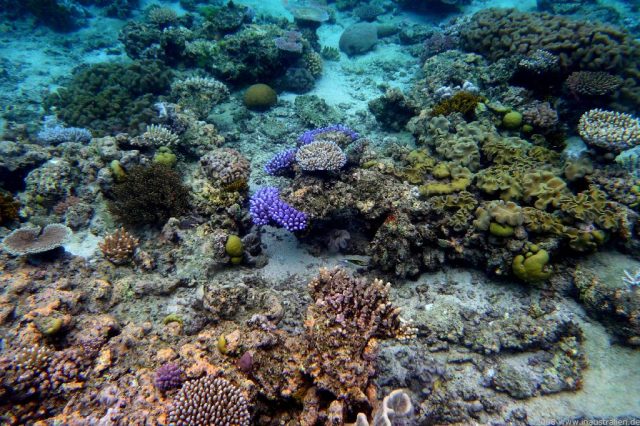Ocean warming and acidification deliver double blow to coral reefs
Ars Technica » Scientific Method 2013-09-30

The dual threats of ocean acidification and anthropogenic warming have the potential to wreak havoc on marine life over the coming decades. Corals require acid-sensitive calcium carbonate for structure and heat-sensitive symbionts for sustenance, so they seem to have the most to lose from a warmer, more acidic ocean. Indeed, numerous studies have already indicated that calcifying organisms, including corals, would be among the worst to suffer.
Although many studies have looked at heat and acidification, few have addressed the possible synergistic effects of these processes on intact coral reefs. To that end, a team of Australian researchers exposed patches of coral reefs to varying seawater temperature and pH conditions associated with a range of CO2 emission scenarios. Their findings, though nuanced, do not bode well for the long-term well-being of coral reefs.
At its core, the study aimed to answer two questions with important ramifications for the future of coral reefs. First, how do current reef calcification rates compare to those of pre-industrial conditions? Second, will reefs respond differently to a possible future in which emission growth continues unabated versus one in which growth is moderately curbed?
Read 12 remaining paragraphs | Comments




